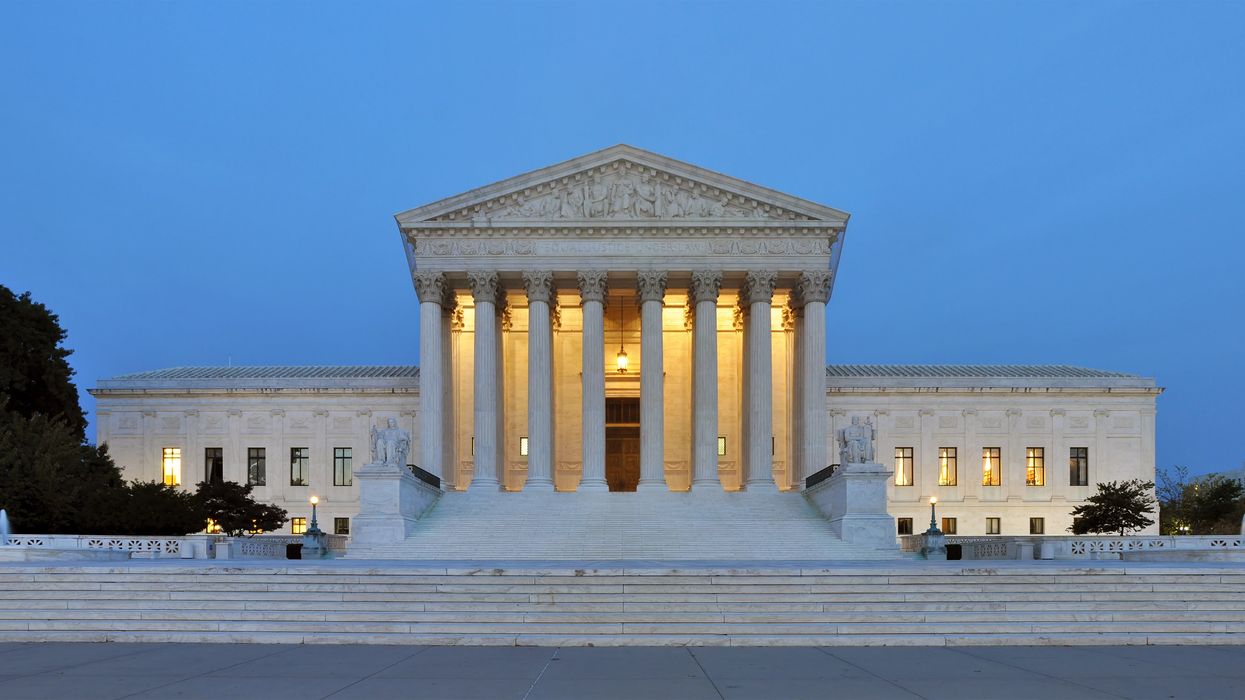There is a collision of two tectonic plates occurring in the world of election law, and it is causing an earthquake in federal jurisprudence on absentee voting.
One of these tectonic plates is the so-called Anderson-Burdick balancing test. This has been the Supreme Court's basic framework for evaluating the general constitutionality of election procedures. Anderson involved the independent presidential candidacy of John Anderson in 1980 and, specifically, his claim that Ohio had an unconstitutionally early deadline for getting on the ballot. Anderson's claim prevailed.
Burdick involved Hawaii's prohibition against write-in votes. (The claim of unconstitutionality lost.) The court in that case built on its Anderson decision. It said that a court must weigh "the character and magnitude of the asserted injury" to First and 14th Amendment rights against the state's interests and justifications for "the burden imposed by its rule."
The Supreme Court most notably applied the Anderson-Burdick test in 2008 to Indiana's version of a voter identification law. It ruled (in a very fractured decision) that the law was not overly burdensome for most voters, but conceded that there might be some future cases in which voters could show specific hardship from having to comply.
The federal courts of appeal, meanwhile, busily applied Anderson-Burdick to myriad voting rules, including ones about absentee voting. For example, in 2012 President Barack Obama's reelection campaign sued Ohio because the Legislature gave military voters three more days of an "in-person" form of absentee voting than it gave to non-military voters. The Sixth Circuit employed Anderson-Burdick to find this disparate treatment unconstitutional.
The second tectonic plate is a 1969 Supreme Court precedent on absentee voting, McDonald v. Board of Election Commissioners of Chicago. That case involved inmates awaiting trial on criminal charges, for whom absentee voting was unavailable under state law. Chief Justice Earl Warren, while acknowledging the major voting rights precedents that the court under his leadership previously had issued — including his own one-person-one-vote opinion in Reynolds v. Sims — declared those precedents inapplicable to absentee voting.
Access of an absentee ballot, Warren wrote, was not the same as access to the "franchise" itself. Absentee voting was only a convenience, in the court's view, "to make voting more available to some groups who cannot easily get to the polls." Consequently, denying absentee ballots to this group of voters did not require "more exacting judicial scrutiny" than the minimal level of "rational basis" review.
The state could limit absentee voting to select groups if it wished. Other notable groups beside inmates — including "mothers with children who cannot afford a babysitter"—were also denied access to absentee voting under state law. The Legislature was entitled to proceed "one step at a time."
Although the Supreme Court has never repudiated McDonald, most followers of election law presumed that its reasoning had been superseded by Anderson-Burdick. Especially because the practice of absentee voting had evolved since 1969 — with many states offering "no excuse" absentee voting as a side-by-side option for voters who simply prefer it to traditional polling-place voting — the treatment of absentee voting in McDonald as an essentially discretionary add-on seemed antiquated and out-of-date. Instead, under Anderson-Burdick, burdens and restrictions on absentee voting — like deadlines and identification requirements — needed to be justified.
But something different has happened this year. Several circuit courts of appeal are treating McDonald, and not Anderson-Burdick, as the relevant precedent for review of absentee voting rules. The 5th Circuit, for example, invoked McDonald and its deferential "rational basis" test to uphold Texas's law that limits absentee voting to those aged 65 and older or those with specific medical conditions that do not include general susceptibility to Covid-19. The 7th Circuit has done the same with respect to Indiana's similarly restrictive absentee voting law.
The Supreme Court will need to sort out the conflict between these two lines of precedent. All across the country, hundreds of cases have been pursued this year on the assumption that Anderson-Burdick would govern the analysis, requiring states to justify any barriers voters face in absentee voting especially in light of pandemic conditions. But if McDonald governs, the assumption of all these lawsuits is incorrect, and the inquiry is altogether different.
There is no more significant issue under consideration in all the election-related litigation this year than settling this basic question: For absentee voting, what is the constitutional test?
Edward B. Foley is professor of law and director of the election law program at The Ohio State University's Moritz College of Law. Read more from The Fulcrum's Election Dissection blog.



















Trump & Hegseth gave Mark Kelly a huge 2028 gift